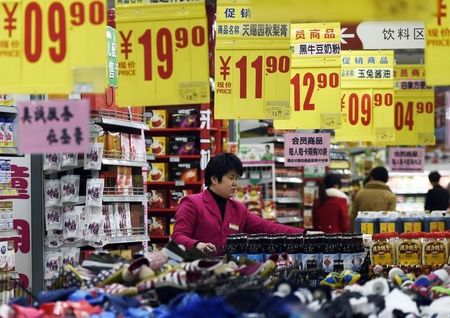The Changing Tide: China’s Economic Downturn
In a sharp turn of events, China, once considered a driving force behind global economic growth, is now facing a decline in consumer confidence and spending, according to analysts at Piper Sandler.
The root causes of this transformation, from a distressed property market to a sluggish labor environment, are not only reshaping China’s domestic economy but also casting a shadow over the global economic landscape.
As housing prices fall and stock values stagnate, household wealth is diminishing, leading to a significant drop in consumer confidence. This loss of trust is causing Chinese consumers to tighten their purse strings, posing a threat to an economy increasingly reliant on domestic consumption for growth.
Moreover, China’s weak job market is fostering uncertainty among consumers, prompting them to save more and spend less. The country’s record-high savings rates signify the prevailing anxiety among Chinese residents about their economic future.
The impact of China’s weakened consumer base extends far beyond its borders, affecting countries and companies that rely on Chinese demand for growth. Reduced spending in China translates to lower import demand, disrupting global trade dynamics and impeding economic progress in other nations.
Furthermore, China’s surplus of consumer goods and industrial commodities poses deflationary risks globally. The pressure to reduce prices could trigger a deflationary spiral in the global markets, compounding economic challenges worldwide.
Luxury markets are also feeling the pinch, with a noticeable decline in opulent spending from China. This shift in consumer behavior is straining luxury brands that traditionally rely on the Chinese market for a significant portion of their revenue.
The automotive industry reflects the mixed effects of China’s economic downturn. While electric vehicles offer some momentum, the broader automotive market is struggling due to weakened consumer spending and a strong “Buy Chinese” campaign.
US companies with exposure to the Chinese market are feeling the impact in the consumer discretionary sector as Chinese consumer spending dwindles. The economic uncertainty in China is dragging down the financial results of these companies, highlighting the vulnerability of multinational corporations heavily reliant on Chinese consumers.
Despite these challenges, China’s policy stance leans towards regulation rather than stimulus. The lack of substantial easing measures indicates a prioritization of stability over aggressive economic expansion, even as growth remains subdued.
In the long term, China faces significant hurdles such as a real estate bubble unwinding, worsening demographics, and a decline in foreign direct investment. These structural issues may hinder China’s ability to regain its former economic momentum, impacting global growth and multinational companies that depend on China as a key growth engine.
While a financial crisis seems unlikely given the government’s control, the ongoing pressures are expected to continue weighing on global growth in the foreseeable future.


